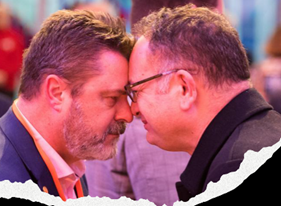Leadership and Cultural Intelligence in Safety
A Reflection from Gerard Jull, TRMA Trustee
Event: NZISM Gisborne Branch CPD Event
Date: 3 September 2025
Presenter: Greg Dearsly
Introduction
I had the privilege of travelling down to Gisborne especially to attend this CPD event, and it was well worth the trip. The presentation on Leadership and Cultural Intelligence in Safety was insightful and thought-provoking, highlighting the evolving role of health and safety professionals as leaders and influencers.
Connecting Through Tikanga
Greg opened with a story about how he visited a marae and was invited to step up and speak—reminding us of the importance of knowing tikanga and understanding that it’s okay to make mistakes. He began with a pepeha, which immediately grabbed my attention.
When presenting, it can be challenging to engage an audience and know what should or must happen. Greg’s calm, confident style set the tone for meaningful reflection.
Insights and Experience
Greg shared his personal experiences from his master’s studies, governance roles, and international work. His knowledge brought credibility and depth to every message he delivered.
Jessie, Branch Manager for the NZISM Gisborne Branch
It was also great to hear from Jessie, Branch Manager for the NZISM Gisborne Branch, who shared insights from her visit to the USA—offering another practical perspective on cultural intelligence in action.
This reminded me that cultural intelligence is not just theory; it’s something we encounter and practice every day.
Influence Through Trust
A key distinction Greg made was between influencing and persuading. True influence, he said, is not about argument—it’s about building trust so others willingly support your ideas.
This resonated with me because it aligns with how safety professionals can truly drive change—through respect, not just compliance.
The Power of Cultural Intelligence
Cultural Intelligence (CQ) is the capability to function and relate effectively in culturally diverse situations. Greg explored how values such as individualism vs collectivism, hierarchy vs equality, and competition vs cooperation shape our approach to leadership and safety.
For me, cultural intelligence means having the awareness, respect, and flexibility to lead in a way that honours others’ values and builds genuine trust.
One of the most powerful takeaways was that CQ can reduce anxiety, build psychological safety, and predict inclusive leadership more strongly than emotional intelligence.
“You can’t be culturally intelligent unless you are prepared to understand your own culture and your biases.” — Greg Dearsly
Strengthening Cultural Grounding
I see room for further growth in how we run sessions like this—perhaps encouraging others to share their pepeha and including karakia alongside introductions. This would strengthen the cultural grounding of the event and invite broader participation, especially in smaller groups.
Greg also reminded us of the planning needed when engaging with other cultures: learning local customs, using the local language, and understanding that norms—like direct eye contact or speaking order—vary across contexts.
Closing Reflection
I left the session with new ideas, a deeper appreciation for cultural intelligence, and motivation to apply these lessons in my own work.
“Me hoki ora pai koutou ki o koutou kāinga ia rā.”
Every person to go home healthy and safe every day.
Ngā mihi,
Gerard Jull
TRMA Trustee


